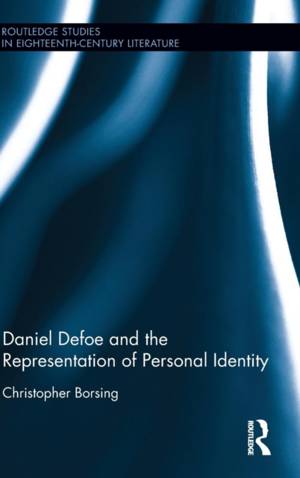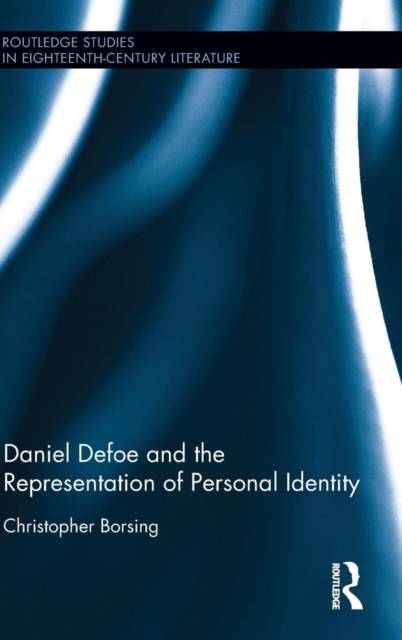
- Retrait gratuit dans votre magasin Club
- 7.000.000 titres dans notre catalogue
- Payer en toute sécurité
- Toujours un magasin près de chez vous
- Retrait gratuit dans votre magasin Club
- 7.000.000 titres dans notre catalogue
- Payer en toute sécurité
- Toujours un magasin près de chez vous
Daniel Defoe and the Representation of Personal Identity / Christopher Borsing
Christopher BorsingDescription
The concept of a personal identity was a contentious issue in the early eighteenth century. John Locke's philosophical discussion of personal identity in An Essay Concerning Human Understanding fostered a public debate upon the status of an immortal Christian soul. This book argues that Defoe, like many of this age, had religious difficulties with Locke's empiricist analysis of human identity. In particular, it examines how Defoe explores competitive individualism as a social threat while also demonstrating the literary and psychological fiction of any concept of a separated, lone identity. This foreshadows Michel Foucault's assertion that the idea of man is 'a recent invention, a figure not yet two centuries old, a new wrinkle in our knowledge'. The monograph's engagement with Defoe's destabilization of any definition or image of personal identity across a wide range of genres - including satire, political propaganda, history, conduct literature, travel narrative, spiritual autobiography, piracy and history, economic and scientific literature, rogue biography, scandalous and secret history, dystopian documentary, science fiction and apparition narrative - is an important and original contribution to the literary and cultural understanding of the early eighteenth century as it interrogates and challenges modern presumptions of individual identity.
Spécifications
Parties prenantes
- Auteur(s) :
- Editeur:
Contenu
- Nombre de pages :
- 202
- Langue:
- Anglais
- Collection :
Caractéristiques
- EAN:
- 9781848934832
- Date de parution :
- 08-09-16
- Format:
- Livre relié
- Format numérique:
- Genaaid
- Dimensions :
- 155 mm x 231 mm
- Poids :
- 430 g







